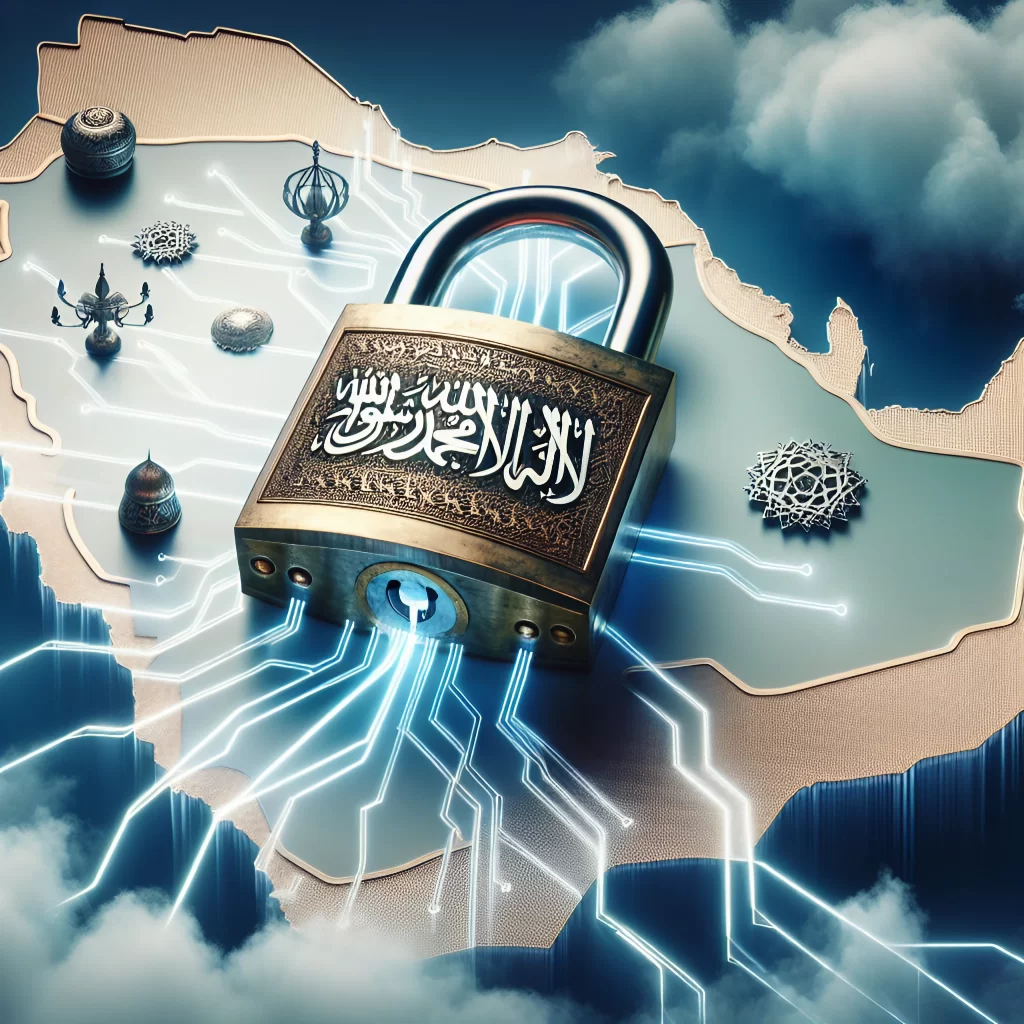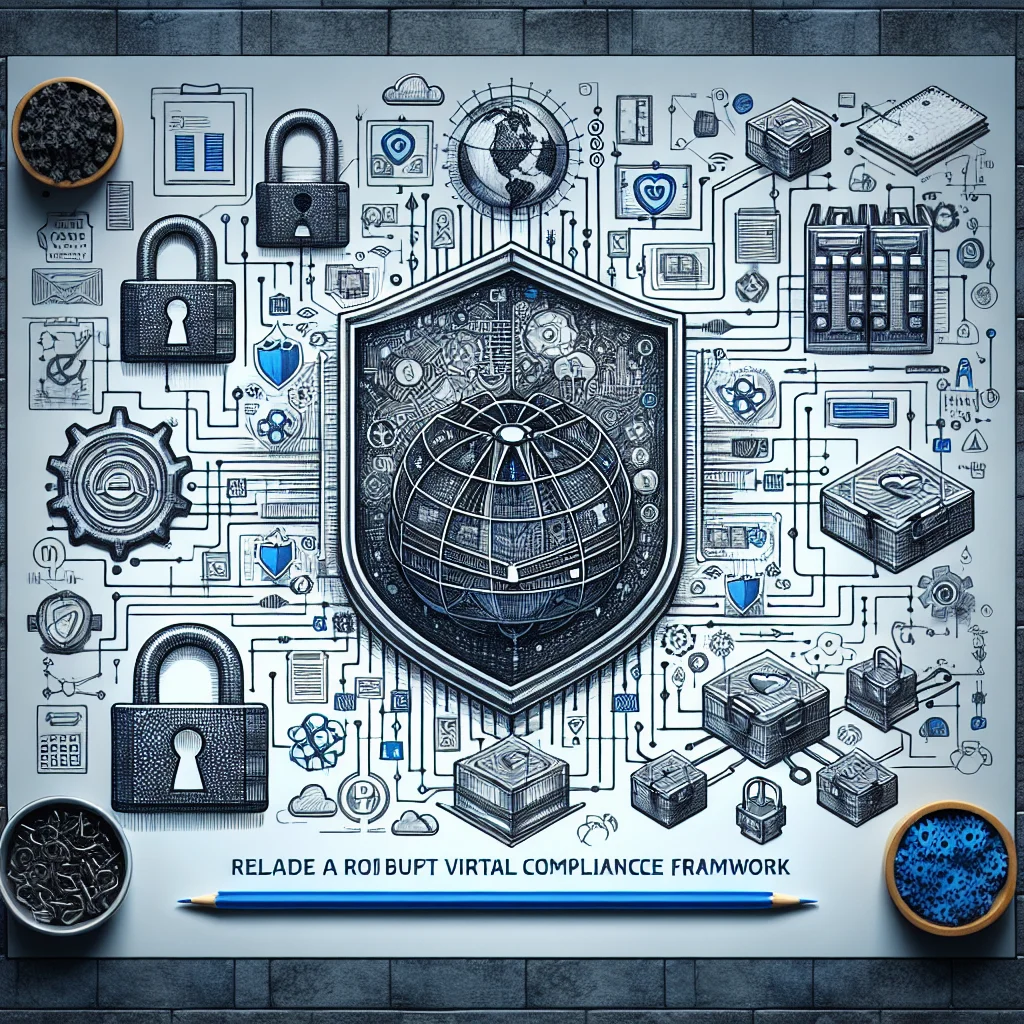In the rapidly evolving landscape of data security and compliance, staying abreast of the latest frameworks is paramount. The Aramco Cybersecurity Compliance Certificate (CCC) framework is one such essential framework, particularly for businesses operating within the Middle East. This article provides an in-depth look at the Aramco CCC Compliance framework, answering key questions that Chief Information Security Officers (CISOs) might have, exploring its unique aspects, and discussing common controls shared with other major frameworks like ISO 27001 and PCI DSS.
What is the Aramco CCC Compliance Framework?
The Aramco Cybersecurity Compliance Certificate (CCC) framework is a comprehensive set of guidelines and standards developed by Saudi Aramco, one of the world’s largest and most influential energy companies. This framework is designed to ensure that third-party vendors and contractors meet stringent cybersecurity requirements, thereby protecting Aramco’s digital assets and operational integrity.
Key Objectives
- Protecting Digital Assets:
- Prevent unauthorized access to sensitive data.
- Ensure the integrity and confidentiality of information.
- Enhancing Operational Resilience:
- Minimize the risk of cyber attacks.
- Maintain continuous and secure operations.
- Compliance and Governance:
- Align with international standards and best practices.
- Ensure accountability and transparency in cybersecurity processes.
Structure of the Aramco CCC Compliance Framework
The Aramco CCC Compliance Framework is organised into several key domains that mirror best practices in cybersecurity and risk management. Each domain encompasses a set of requirements and controls that organisations must implement to achieve compliance. The primary domains include:
1. Access Control
This domain outlines the measures necessary to restrict access to sensitive systems and data. It includes user authentication protocols, role-based access controls, and regular audits to ensure compliance with access policies.
2. Incident Management
Organisations must establish robust incident management procedures to identify, respond to, and recover from cybersecurity incidents effectively. This includes creating an incident response plan, training personnel, and conducting regular simulations to prepare for potential breaches.
3. Risk Assessment
A critical component of the framework is the comprehensive risk assessment process that organisations must undertake. This involves identifying potential threats and vulnerabilities, evaluating the risks they pose, and implementing measures to mitigate those risks.
4. Security Compliance
To maintain alignment with the Aramco CCC, organisations are required to undergo regular assessments and audits. This process helps validate compliance with the framework’s standards and ensures ongoing adherence to best practices in cybersecurity.
Who Needs to Comply with the Aramco CCC Framework?
Compliance with the Aramco CCC framework is mandatory for all third-party vendors, contractors, and service providers who engage with Saudi Aramco. This includes IT service providers, software vendors, hardware suppliers, and consulting firms.
Key Stakeholders
- CISOs and IT Managers:
- Responsible for implementing and maintaining compliance measures.
- Procurement and Vendor Management Teams:
- Ensure that third-party vendors meet Aramco’s cybersecurity standards.
- Senior Management:
- Oversee compliance initiatives and allocate necessary resources.
Commonly Asked Questions by CISOs
1. What are the primary requirements of the Aramco CCC framework?
The Aramco CCC framework encompasses a wide range of cybersecurity requirements, including:
- Access Control:
- Implementing robust authentication and authorization mechanisms.
- Data Protection:
- Encrypting sensitive data both at rest and in transit.
- Incident Response:
- Developing and testing incident response plans.
- Network Security:
- Securing network infrastructure and monitoring for potential threats.
- Compliance Management:
- Regularly auditing and assessing compliance with cybersecurity policies.
2. How does the Aramco CCC framework align with international standards?
The Aramco CCC framework aligns closely with internationally recognized standards such as ISO 27001 and PCI DSS. This alignment ensures that businesses can leverage existing compliance efforts to meet Aramco’s requirements.
3. What are the penalties for non-compliance?
Non-compliance with the Aramco CCC framework can result in severe penalties, including:
- Contract Termination:
- Immediate termination of contracts with non-compliant vendors.
- Financial Penalties:
- Imposing significant fines and penalties.
- Reputational Damage:
- Loss of trust and credibility within the industry.
4. How can automated compliance platforms assist in achieving compliance?
Automated compliance platforms like Cyberarrow and Drata offer several benefits, including:
- Streamlined Audits:
- Automating the audit process, reducing the burden on IT teams.
- Real-time Monitoring:
- Continuous monitoring of compliance status and identifying potential issues.
- Comprehensive Reporting:
- Generating detailed reports for internal and external stakeholders.
Relationship Between SACS-002 and Aramco CCC:
- SACS-002 is the specific cybersecurity standard that organizations must comply with to meet Saudi Aramco’s cybersecurity expectations.
- Aramco CCC is the certification that validates an organization’s compliance with SACS-002 and potentially other related cybersecurity standards.
- In essence, the Aramco CCC acts as proof that a vendor or partner has successfully implemented the controls and practices required by SACS-002, making them eligible to conduct business with Saudi Aramco.
Middle East Specific Considerations
Operating within the Middle East presents unique challenges and considerations for compliance with cybersecurity frameworks like Aramco CCC. Here are some region-specific factors to keep in mind:
Regulatory Landscape
The Middle East has seen a significant increase in cybersecurity regulations and standards in recent years. Governments in the region are implementing stringent data protection laws, such as the Saudi Data & Artificial Intelligence Authority (SDAIA) and the UAE’s National Cybersecurity Strategy. Understanding and aligning with these regulations is crucial for achieving compliance.
Cultural Nuances
Cultural factors play a significant role in business operations in the Middle East. Building strong relationships and trust with stakeholders is essential. This includes clear communication and transparency regarding cybersecurity measures and compliance efforts.
Technological Infrastructure
The Middle East is witnessing rapid technological advancements and digital transformation across various sectors. Ensuring that your IT infrastructure is compatible with the latest technologies and standards is vital for compliance with the Aramco CCC framework.
Common Controls Between Frameworks
Understanding the common controls shared between the Aramco CCC framework and other major frameworks like ISO 27001 and PCI DSS can help streamline compliance efforts.
Common Controls Between Frameworks
To facilitate a smoother compliance process, organisations should focus on the common controls that exist between the Aramco CCC framework and other frameworks like ISO 27001 and PCI DSS. Here are some exact clauses that are typically shared:
- Information Security Policies: All frameworks emphasise the need for organisations to develop and maintain comprehensive information security policies that set out the governance structure and behaviours expected from employees regarding data protection and security.
- Access Control: There is a consistent requirement across these frameworks to implement access control measures which limit access to sensitive systems and data only to authorised personnel.
- Asset Management: Effective asset management protocols are mandated, requiring organisations to identify and classify assets to ensure that the necessary security measures are in place to protect them.
- Incident Management and Response: A robust incident response procedure is expected in all frameworks, calling for the establishment of clear processes for reporting and responding to security incidents.
- Regular Audits and Compliance Assessments: An essential requirement is conducting regular audits and assessments to verify compliance with established security policies and frameworks, ensuring ongoing adherence to best practices.
- Data Encryption: The necessity for encrypting sensitive data both at rest and in transit is a common aspect of these compliance frameworks, safeguarding data from unauthorized access.
By aligning these common controls, organisations can streamline their compliance initiatives and reduce the administrative burden involved in adhering to multiple standards.
Access Control
- Aramco CCC:
- Implementing multi-factor authentication (MFA) and role-based access control (RBAC).
- ISO 27001:
- Ensuring access to information is restricted based on business needs.
- PCI DSS:
- Restricting access to cardholder data to authorized personnel only.
Data Protection
- Aramco CCC:
- Encrypting sensitive data at rest and in transit.
- ISO 27001:
- Protecting information through encryption and secure protocols.
- PCI DSS:
- Encrypting transmission of cardholder data across open, public networks.
Incident Response
- Aramco CCC:
- Developing and testing incident response plans.
- ISO 27001:
- Implementing an incident management process.
- PCI DSS:
- Creating and maintaining an incident response plan.
Network Security
- Aramco CCC:
- Securing network infrastructure and monitoring for potential threats.
- ISO 27001:
- Ensuring the security of network services and monitoring activities.
- PCI DSS:
- Installing and maintaining a firewall configuration to protect data.
Compliance Management
- Aramco CCC:
- Regular assessment of compliance with cybersecurity policies to maintain adherence to standards.
- ISO 27001:
- Conducting internal audits and reviews to ensure the effectiveness of the information security management system (ISMS).
- PCI DSS:
- Implementing quarterly assessments to confirm that security controls are effective and up-to-date.
Employee Training and Awareness
A critical aspect of compliance across all frameworks is the emphasis on employee training and awareness. Each framework highlights the need for comprehensive training programs that educate employees about security policies, procedures, and best practices. By fostering a culture of security awareness, organisations can mitigate human errors and enhance their overall security posture.
Continuous Improvement
Finally, organisations must focus on continuous improvement as a core principle of their compliance efforts. This involves regularly reviewing and updating cybersecurity policies, procedures, and controls based on emerging threats and vulnerabilities. By maintaining a proactive approach to compliance and security, organisations can better navigate the dynamic landscape of cybersecurity while meeting the stringent requirements of the Aramco CCC framework and its international counterparts.
Conclusion
The Aramco CCC Compliance framework represents a critical standard for businesses engaging with Saudi Aramco. By understanding its requirements and aligning with international standards, businesses can enhance their cybersecurity posture and build trust with one of the world’s leading energy companies.
For CISOs and IT professionals in the Middle East, achieving compliance with the Aramco CCC framework is not just about meeting regulatory requirements—it’s about demonstrating a commitment to protecting digital assets and maintaining operational resilience.
Ready to take the next step in your compliance journey? Book a demo of ComplyHawk, the automated compliance platform that can help you achieve and maintain compliance with ease.



